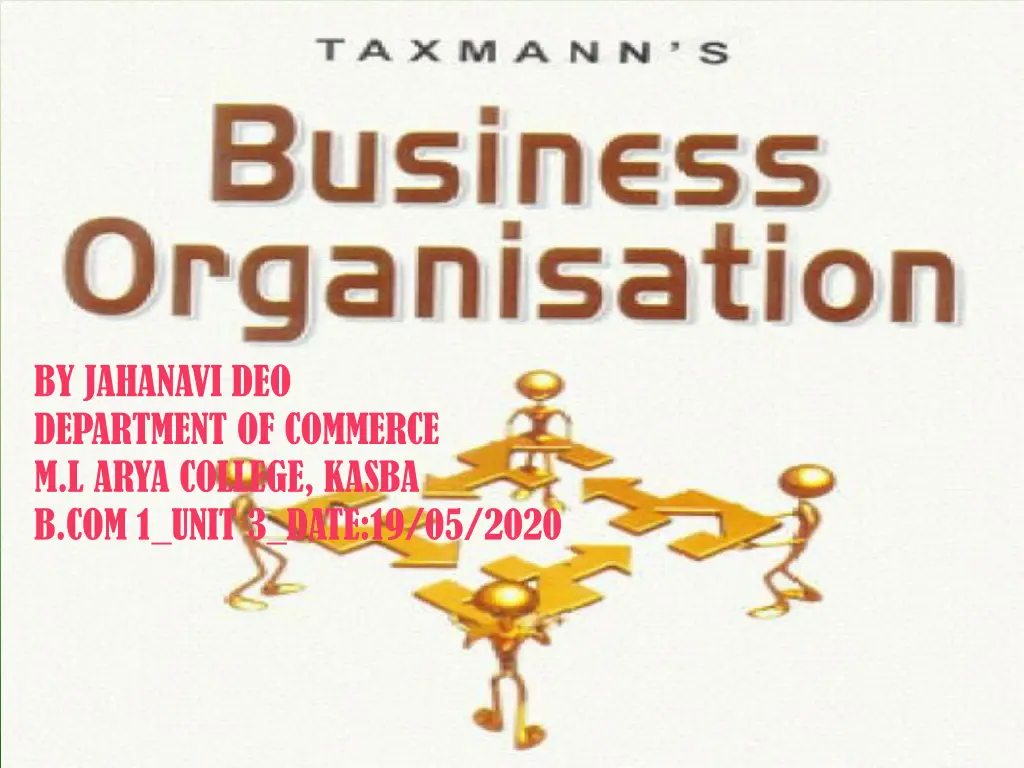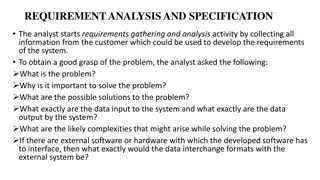
Benefits and Drawbacks of Functional Organisation
Explore the advantages and disadvantages of a functional organizational structure, such as increased efficiency and limited duties versus conflicts in authority and issues with responsibility pinpointing. Understand how this system affects expansion, flexibility, and discipline within an organization.
Download Presentation

Please find below an Image/Link to download the presentation.
The content on the website is provided AS IS for your information and personal use only. It may not be sold, licensed, or shared on other websites without obtaining consent from the author. If you encounter any issues during the download, it is possible that the publisher has removed the file from their server.
You are allowed to download the files provided on this website for personal or commercial use, subject to the condition that they are used lawfully. All files are the property of their respective owners.
The content on the website is provided AS IS for your information and personal use only. It may not be sold, licensed, or shared on other websites without obtaining consent from the author.
E N D
Presentation Transcript
BY JAHANAVI DEO DEPARTMENT OF COMMERCE M.L ARYA COLLEGE, KASBA B.COM 1_UNIT 3_DATE:19/05/2020
Advantages of functional organisation 1. Specialisation: This system derives the benefits of specialisation. As every functional incharge is an expert in his area, he will guide using his specialisation and with the help of the subordinates, try to attain the specified objectives. 2. Increased efficiency: This type of organisation ensures enhanced efficiency as the workers operate under the expert and competent personnel and perform limited operations.
3. Limited duties: The functional foremen have to carry out the limited number of duties concerning their area of work. This considerably reduces the burden of work and makes possible for the foreman to carry out the work in the best possible manner. 4. Scope for expansion: Functional organisation offers a great scope for expansion of business enterprise without any dislocation and loss of efficiency as each man grows on account of his own speciality.
5. Flexibility: It is flexible pattern of organisation. A change in organisation can be made without disturbing the whole organisation. In the words of Louis A. Allen, Function as a whole can he cut by eliminating positions at the lower levels without seriously affecting its total performance.
Disadvantages of Functional Organization 1. Conflict in authority: The authority relationship violates the principle of unity of command . It creates several bosses instead of one line authority. It leads to conflict and confusion in the minds of the workers to whom they should obey and whom they should ignore. 2. Difficulty in pinpointing responsibility: On account of the non-application of the principle of unity of control , it is very difficult for the top management to fix the responsibility of a particular foreman. There arises a tendency for shirking of responsibility.
3. Expensive: This pattern of organisation is quite impracticable and expensive. Multiplicity of experts increases the overhead expenditure. The small organisations cannot afford to install such a system. 4. Discipline is slackened: Discipline among the workers as well as lower supervisory staff is difficult to maintain as they are required to work under different bosses and this may hamper the progress of the organisation.
5. Lack of co-ordination: Appointment of several experts in the organisation creates the problem of co-ordination and delay in decision-making especially when a decision requires the involvement of more than one specialist.






















